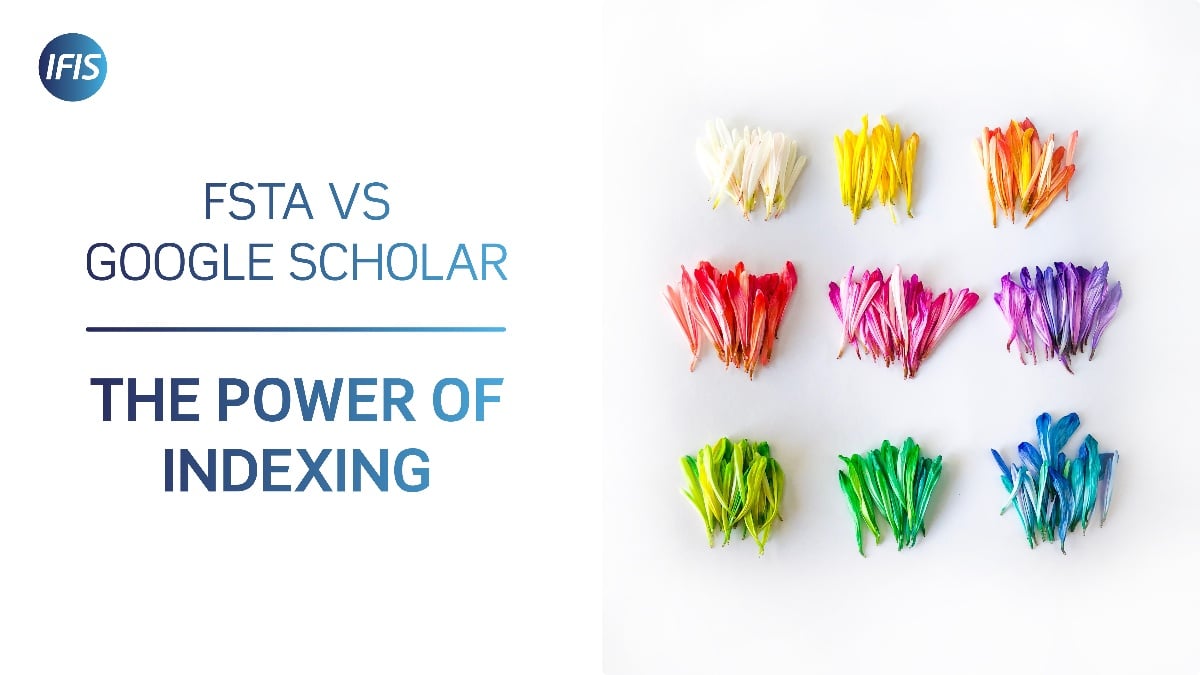Google Scholar and FSTA work very differently in how they find results. Google Scholar searches for exactly the word or words that you type while FSTA is built on a thesaurus of controlled vocabulary.
This thesaurus, compiled by food science experts, consists of terms all focused on and relevant to the sciences of food and health.
When researchers from different cultures and geographies use different words to describe the same concept, the thesaurus pulls those terms together. Then an FSTA indexer assigns the appropriate thesaurus terms to each record to capture what that piece of research is about.
Indexing hugely affects how successful researchers will be when searching for literature. Watch more
How does a controlled vocabulary make your search results more comprehensive?
In the FSTA thesaurus, results containing the word flavour spelt with a “u”, flavor with no “u” and the word taste are all discoverable with a single search.
Google Scholar does not use controlled vocabulary. Instead, it only searches for exactly what you type in the search box. Every time you type a different version of the word capturing the concept of flavour—eg. flavour, flavours, flavor, flavors, taste, tastes, or tasting—you get a new set of results.
When you move to another language and for example, type the Spanish word for flavour, sabor, most of the results you get are actually in English and are about things having nothing to do with flavour—they are written by scholars whose surname is "Sabor".
Type Italian gusto, and it happens again. When we search in Korean, we get an entirely new set of results.
If we keep going with more languages, the results we get will keep changing.
Searching FSTA, though, for flavor, we get results with flavour spelled with and without a "u", taste, and plurals. This is all thanks to the thesaurus underpinning our search.
In fact, with a single search for flavour in FSTA, we get results in 40 languages, pulled together for you. You don’t need to figure out the 40+ versions of the word you would have to search in Google Scholar. This is the power of indexing.
Plus, the titles and abstracts of each of these records will be available in English, allowing you to make an educated judgement about whether you actually need the full text.
Video written and created by Carol Hollier.
You can also explore webinars, videos and other resources for those studying the sciences of food and health. These resources include our new Expert Guide to Literature Searching:
Photo by Jessica Lee on UnsplashRelated content on our Research Skills blog:





